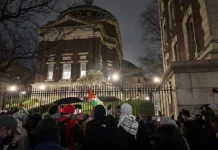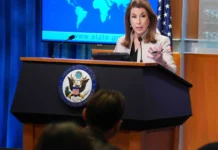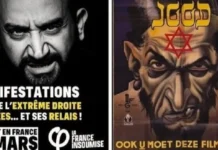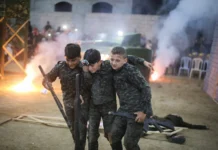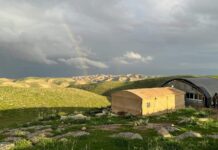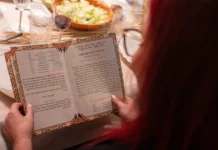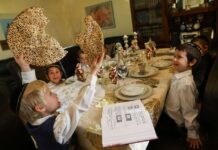As Jews, we read about faith all the time. We study Torah and learn the stories of our forebears—men and women of deep conviction who faced epic tests and challenges, yet maintained their belief, trust and devotion to God despite agonizing circumstances. We admire their courage and their integrity, and try to follow in their ways. We pray that we are not tried as they were and grapple over whether we would be able to succeed and persevere if we encountered such dire circumstances.
I, and many of my colleagues, write, speak or teach about faith on a regular basis. We draw on these examples from scripture or from dark times in more recent history like the years of the Holocaust, when our brothers and sisters were subjected to horrific physical, psychological and spiritual tortures yet refused to lose hope or abandon the God who others insisted had abandoned them.
However, all of these paragons of faith—with all of their profound lessons and power—lack immediacy and, to some extent at least, relatability. They are distant, historic, heroic figures who are not “normal” people like you and me. We can learn from them and we can strive to emulate them, but we do not really expect to reach such angelic heights ourselves.
Yet every so often, we are presented with modern day heroes and/or heroines who are challenged in heartrending ways that we cannot imagine, and who provide us a current and immediate example of faith that we may have otherwise believed to be only biblical or only possible in theory. When we witness such an “ordinary” person, not so different from us, who acts or reacts in extraordinary ways, then we are forced to consider that perhaps we too could muster such courage and such remarkable faith if, God forbid, we were confronted with the unthinkable.
Rachel Goldberg-Polin, the mother of murdered hostage Hersh Goldberg-Polin, just 23, recently provided us with such an example. A model of strength, love and astonishing grace throughout the 11 months of her son’s captivity and his tragic murder, she spoke words last week that should be read by anyone who has suffered and anyone who has ever struggled with questions of faith. And by that, I mean all of us.
In an interview last week in Australia, Rachel and her husband, Jonathan Polin, were asked about their relationship with God after the tragedy they have endured. “Do you still know God in the same way today as you did before Oct. 7, 2203?” the interviewer asked.
Rachel considered it, took her time, and then delivered the following breathtaking response:
“It’s such a poignant question because I feel like I know God so much better. This will probably sound strange. I haven’t said it to anyone I don’t think except for Jon, but I actually feel that the closest that I’ve ever come to feeling, really feeling God, is when Hersh was killed. It felt so unbelievable that it could only be from God.
“And I heard Hersh’s principal from his high school rabbi Shlomi Danino. … He spoke recently and was saying that one of the interpretations of the book of Job that is part of the Jewish Bible; we have this book about a man who was supposedly a good man and all of these terrible tragedies befell him. He lost his wife, he lost his children—all of them—he suffered a terrible disease. And what Rabbi Danino was explaining was that there’s an interpretation where Job says to one of his friends, ‘I’m not a saint, but I’m not a terrible person, so I know this is not a punishment, and I know this is from God, and I know I don’t understand it, but I know that it’s from God.’
“And that’s really how I feel. I really feel that. I’m not a saint, but I’m not a horrible person, and I know this is not a punishment. And certainly, Hersh was not a saint nor a horrible person, and I know it’s not a punishment, and I know it’s part of this.
“I grew up in Chicago, and my mother was very determined to make me a cultured person, and so she would drag me to the Chicago Art Institute all the time and force me to look at all this art. And there’s this famous painting by Georges Seurat, ‘A Sunday on the Island of La Grande Jatte.’ It’s the pointillist masterpiece that if you look at it very closely, it doesn’t make any sense; it’s just a bunch of dots and chaos and blurriness. And when you step back, then you see this glorious tapestry of gorgeousness. But when you’re very close and in it, you don’t see it.
“And I really believe—and maybe this is a survival tactic, maybe it’s the lies we tell ourselves to keep ourselves OK—but I believe that there is a grand tapestry. And I don’t have the hubris to say that I understand the tapestry, but I’m faithful that it’s there, and that’s why I think that this indescribable blow that we’re learning how to digest is also in some way a kiss from God.”
Rachel, Jon and the Goldberg-Polin family have been subjected to torment and tragedy that no one should ever have to endure. Appallingly, their experience—or something similar to it—has been shared by thousands more of our brethren who have been directly affected by the horrific events of Oct. 7 and the ensuing war. And all of us—the extended family of Israel, in addition to all people of good conscience throughout the world—must wonder how to go on in the face of such pain and loss. Is it possible to maintain faith when your world is shattered and your loved ones have been taken from you?
Rachel’s words provide us not only incredible strength and solace but also a very current, present and relatable meditation with which all of us can face our challenges and questions, whether great or small: God is here, even in the darkness. I’m not a saint, but I’m not a villain, so I know this is not a punishment. I don’t understand it, but I recognize that suffering is not an indication of God’s absence, of His vengeance or of injustice. I trust that though I cannot see it now, one day I will appreciate the beauty of the entire tapestry. In the meantime, I will persevere and I will try to greet every adversity and obstacle as another kiss from God.
We owe her tremendous gratitude for this poignant living example.
May she and her family know only revealed blessings from above. And may she and all of the mourners of Zion and Jerusalem be comforted and soon reunited with their loved ones.

